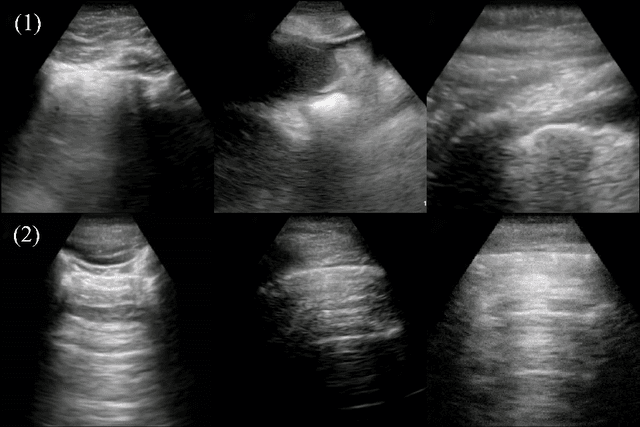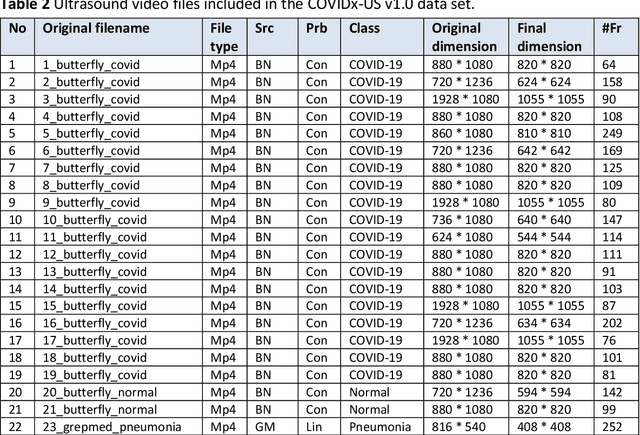Sonny Kohli
COVID-Net US: A Tailored, Highly Efficient, Self-Attention Deep Convolutional Neural Network Design for Detection of COVID-19 Patient Cases from Point-of-care Ultrasound Imaging
Aug 05, 2021



Abstract:The Coronavirus Disease 2019 (COVID-19) pandemic has impacted many aspects of life globally, and a critical factor in mitigating its effects is screening individuals for infections, thereby allowing for both proper treatment for those individuals as well as action to be taken to prevent further spread of the virus. Point-of-care ultrasound (POCUS) imaging has been proposed as a screening tool as it is a much cheaper and easier to apply imaging modality than others that are traditionally used for pulmonary examinations, namely chest x-ray and computed tomography. Given the scarcity of expert radiologists for interpreting POCUS examinations in many highly affected regions around the world, low-cost deep learning-driven clinical decision support solutions can have a large impact during the on-going pandemic. Motivated by this, we introduce COVID-Net US, a highly efficient, self-attention deep convolutional neural network design tailored for COVID-19 screening from lung POCUS images. Experimental results show that the proposed COVID-Net US can achieve an AUC of over 0.98 while achieving 353X lower architectural complexity, 62X lower computational complexity, and 14.3X faster inference times on a Raspberry Pi. Clinical validation was also conducted, where select cases were reviewed and reported on by a practicing clinician (20 years of clinical practice) specializing in intensive care (ICU) and 15 years of expertise in POCUS interpretation. To advocate affordable healthcare and artificial intelligence for resource-constrained environments, we have made COVID-Net US open source and publicly available as part of the COVID-Net open source initiative.
COVIDx-US -- An open-access benchmark dataset of ultrasound imaging data for AI-driven COVID-19 analytics
Mar 18, 2021



Abstract:The COVID-19 pandemic continues to have a devastating effect on the health and well-being of the global population. Apart from the global health crises, the pandemic has also caused significant economic and financial difficulties and socio-physiological implications. Effective screening, triage, treatment planning, and prognostication of outcome plays a key role in controlling the pandemic. Recent studies have highlighted the role of point-of-care ultrasound imaging for COVID-19 screening and prognosis, particularly given that it is non-invasive, globally available, and easy-to-sanitize. Motivated by these attributes and the promise of artificial intelligence tools to aid clinicians, we introduce COVIDx-US, an open-access benchmark dataset of COVID-19 related ultrasound imaging data that is the largest of its kind. The COVIDx-US dataset was curated from multiple sources and consists of 93 lung ultrasound videos and 10,774 processed images of patients infected with SARS-CoV-2 pneumonia, non-SARS-CoV-2 pneumonia, as well as healthy control cases. The dataset was systematically processed and validated specifically for the purpose of building and evaluating artificial intelligence algorithms and models.
 Add to Chrome
Add to Chrome Add to Firefox
Add to Firefox Add to Edge
Add to Edge